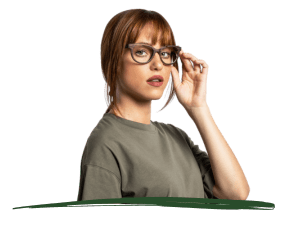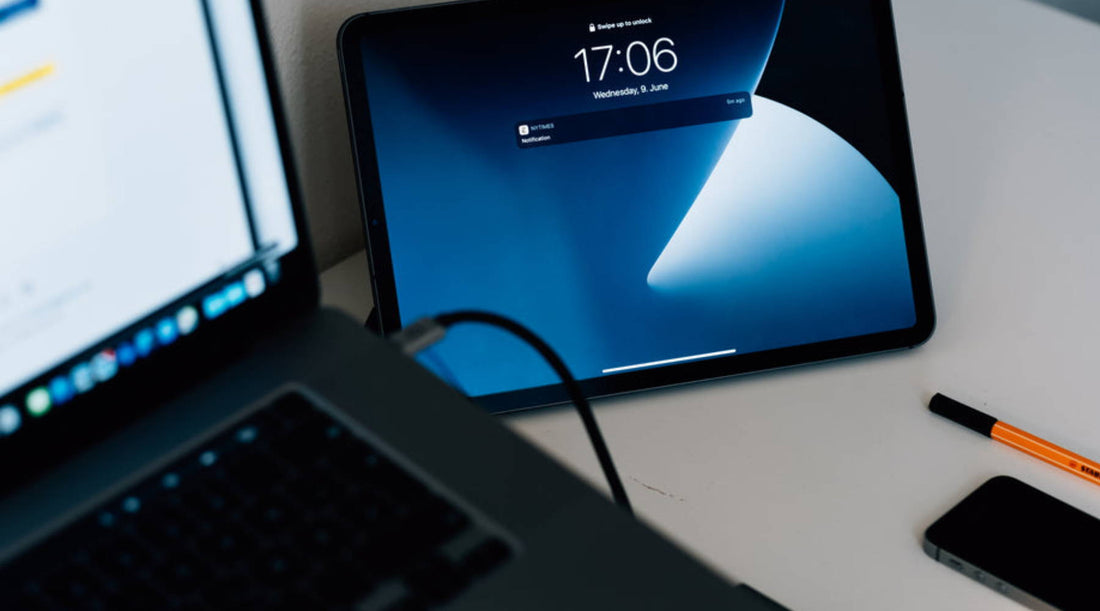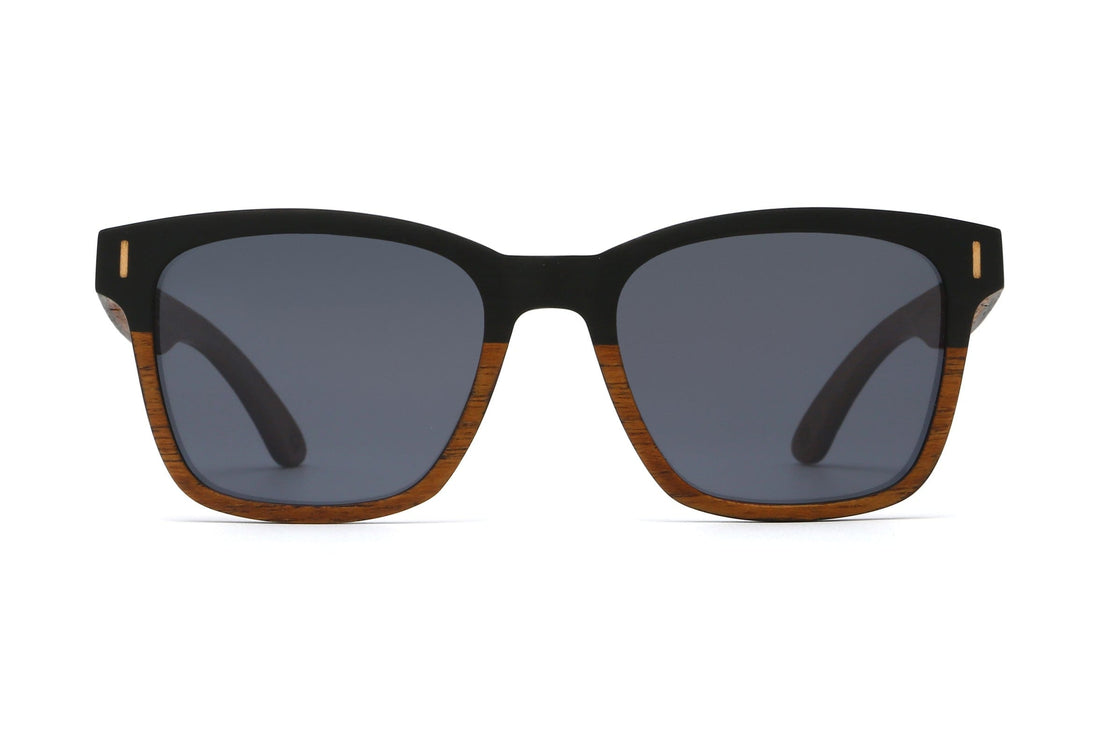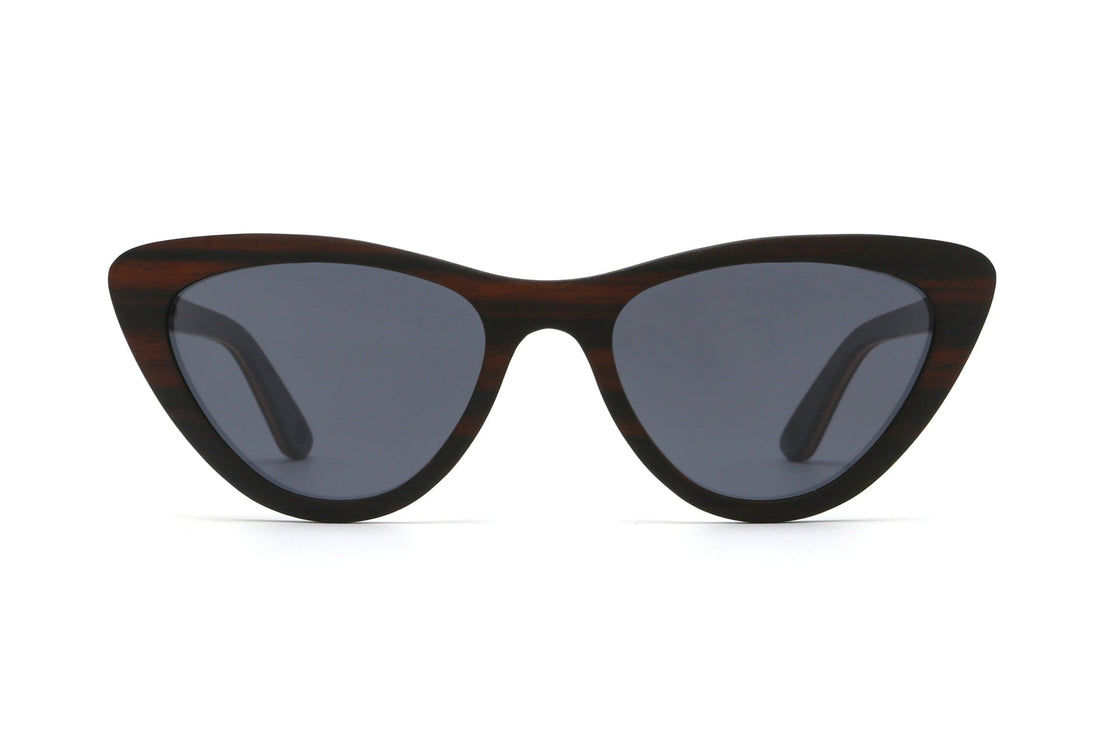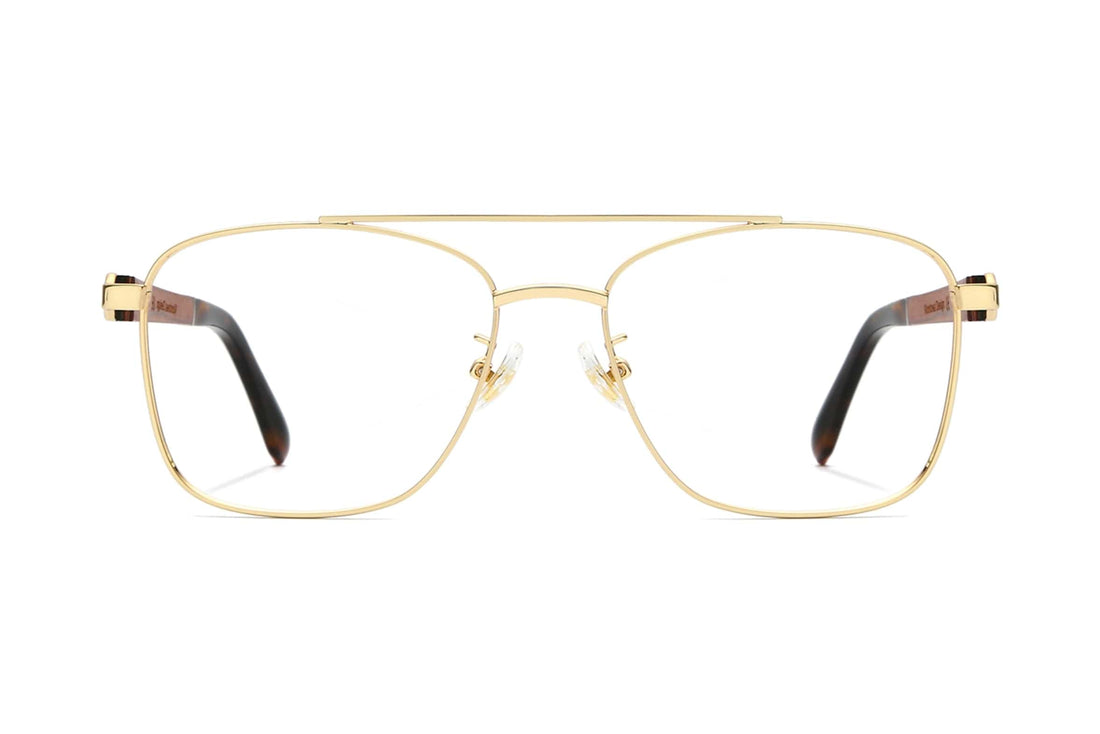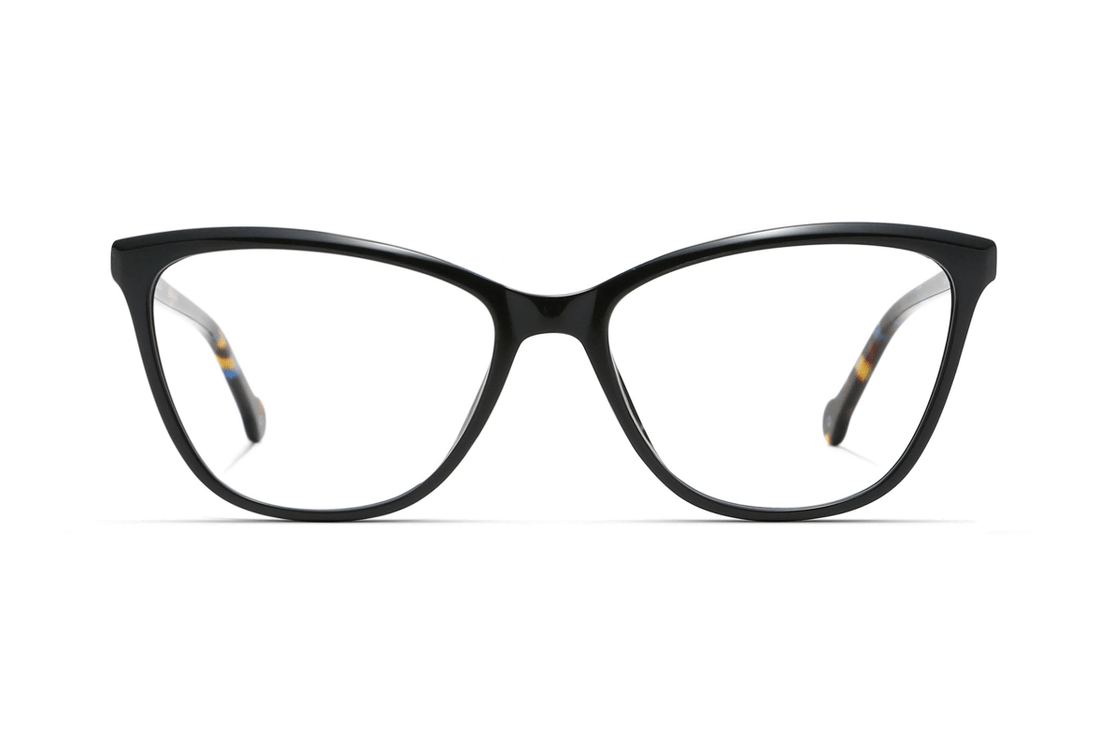
How Do Sunglasses Block Blue Light? What They Can and Can’t Do
Do Sunglasses Block Blue Light?
7 min read • Update 27 January 2026
Sunglasses can block some blue light, but their primary role is UV protection, not full blue light filtering. While certain lens tints and coatings may reduce portions of high-energy visible (blue) light outdoors, sunglasses are not a replacement for dedicated blue light glasses, especially for indoor screen use.
Understanding how sunglasses block blue light, what they are designed to protect against, and where their limitations lie is essential for making the right choice for your eye health. In this guide, we explain what blue light is, how it differs from UV light, when sunglasses help, and when blue light glasses are the better option.
In this article, you’ll learn:
-
What blue light is and where it comes from
-
The difference between blue light and UV light
-
How sunglasses protect your eyes outdoors
-
Whether sunglasses can filter blue light
-
Which lens tints affect blue light exposure
-
When to prioritize UV protection vs blue light protection
What Is Blue Light?
Blue light is a high-energy, short-wavelength portion of visible light. It sits on the blue end of the visible light spectrum and carries more energy than most other visible colors, which is why it can contribute to eye strain and visual discomfort over time.
There are two main sources of blue light:
-
Natural blue light from the sun, which is the strongest source and plays an important role in regulating alertness, mood, and circadian rhythm
-
Artificial blue light from digital screens and LED lighting, including phones, computers, tablets, and televisions
Not all blue light is harmful. In fact, natural blue light during the day helps regulate your sleep–wake cycle and supports cognitive function. Problems tend to arise with prolonged, close-range exposure to artificial blue light, especially from screens, which can contribute to digital eye strain, headaches, dry eyes, and disrupted sleep patterns.
It’s also important to clarify a common misconception: blue light is not the same as UV light. Blue light is visible, while ultraviolet light is invisible and far more damaging to eye tissue if left unfiltered. This distinction matters when choosing the right type of eye protection.
Blue Light vs UV Light: What’s the Difference?
Although blue light and UV light often get discussed together, they are not the same, and they affect your eyes in very different ways. Understanding this difference is key to knowing what sunglasses are designed to protect against and where blue light glasses come in.
UV (ultraviolet) light is invisible radiation emitted by the sun. It sits outside the visible light spectrum and carries significantly more energy than blue light. Prolonged UV exposure is directly linked to serious eye conditions, including cataracts, macular degeneration, photokeratitis (sunburned eyes), and damage to the delicate skin around the eyes. This is why 100% UVA/UVB protection is essential in all sunglasses.
Blue light, in contrast, is visible light with higher energy than most colors but far less than UV radiation. Unlike UV, it does not directly damage eye tissue, though prolonged exposure—especially from digital screens—can contribute to eye strain, headaches, and disrupted sleep patterns. Blue light’s effects are largely functional rather than structural, influencing visual comfort and circadian rhythms rather than long-term ocular health. Understanding this distinction helps clarify why standard sunglasses focus on UV protection, while specialized blue light glasses are better suited for screen-heavy environments.
Why This Distinction Matters
Sunglasses are engineered first and foremost to block UV light, not blue light. UV protection is non-negotiable for outdoor eye health. Blue light protection, however, is more situational. It becomes most relevant during prolonged indoor screen use rather than general outdoor exposure.
This means:
-
UV protection should always be the top priority when choosing sunglasses
-
Blue light protection is best addressed with dedicated blue light glasses, especially indoors
- Some sunglasses may offer limited blue light reduction, but that is a secondary benefit, not their primary purpose
Understanding this difference helps prevent overestimating what sunglasses can do and ensures you choose the right eyewear for the right environment.
Sunglasses and Eye Protection: Where Blue Light Fits In
To understand whether sunglasses can truly help with blue light, it’s important to separate what sunglasses are designed to do from what they may do under certain conditions.
UV Protection: The Primary Role of Sunglasses
The most important job of sunglasses is UV protection. Quality sunglasses are designed to block 100% of UVA and UVB rays, which are proven to cause long-term eye damage. This protection helps reduce the risk of cataracts, retinal damage, and sun-related eye irritation, while also protecting the skin around the eyes.
UV exposure is unavoidable outdoors, even on cloudy days. That’s why UV protection should always be non-negotiable when choosing sunglasses. Unlike blue light, UV damage is cumulative and irreversible, making sunglasses an essential tool for long-term eye health.
Blue Light Protection: A Secondary Benefit, Not the Main Purpose
So, do sunglasses block blue light?
The answer is: sometimes, partially, and incidentally.
Some sunglasses can reduce a portion of blue light because:
-
Certain lens tints naturally absorb parts of the blue light spectrum
-
Some specialized coatings are designed to filter high-energy visible light
However, standard sunglasses are not engineered to block blue light in the same targeted way as blue light glasses. Their filtering effect is inconsistent and highly dependent on lens color, material, and coatings.
This is why sunglasses should not be relied on as your primary blue light protection, especially indoors.
Best Use Case: Sunglasses Outdoors, Blue Light Glasses Indoors
For optimal eye protection, it’s best to choose eyewear based on what you want your glasses to do most.
-
Outdoors: Prioritize sunglasses with 100% UVA and UVB protection. UV exposure is unavoidable outside and causes cumulative, irreversible eye damage. Any blue light reduction from sunglasses should be considered a secondary benefit, not the main purpose.
-
Indoors or screen-heavy environments: Blue light glasses are the better option, as they are specifically designed to filter high-energy visible light emitted by digital screens. Most legitimate blue light glasses made with polycarbonate or Trivex lenses can also inherently block 100% UV rays, provided they are properly labeled. This means many blue light glasses can still offer UV protection, even though their primary function is managing screen-related eye strain.
There are also dual-purpose options, such as sunglasses with added blue light filtering or photochromic lenses that adapt to different lighting conditions. These can be helpful if you frequently move between outdoor light and screen use. Ultimately, the right choice depends on which type of protection you prioritize most: UV protection for outdoor exposure or blue light filtering for prolonged screen time.
Learn more about the above eyewear upgrades and their benefits in our quick guides on why blue light coating is essential or what photochromic lenses are to better understand what option works best for your needs.
Lens Color and Tint: Does It Affect Blue Light Filtering?
Lens color plays a role in how light feels to your eyes, but it’s important to be precise about what tint does and does not do when it comes to blue light.
Lens tint does not automatically mean blue light protection. A darker lens reduces overall brightness, but it does not selectively filter blue light unless it is specifically designed to do so. That said, some tints can reduce portions of high-energy visible light more than others, especially outdoors.
Here’s how common tints compare:
-
Amber, copper, and brown lenses: These tints absorb more short-wavelength light, including some blue light. They increase contrast and are often more comfortable in bright outdoor conditions. This is why they are sometimes associated with partial blue light reduction.
-
Grey lenses: Grey lenses reduce brightness evenly across the visible spectrum. They preserve natural color perception but do not specifically target blue light.
-
Green lenses: Green lenses balance contrast and color accuracy while reducing glare. Like grey lenses, they offer comfort but minimal blue light filtering.
-
Mirrored or dark lenses: These primarily control brightness and glare. Without a dedicated blue light filter, they do not meaningfully block blue light.
Key takeaway: Lens tint can improve comfort and visual clarity outdoors, but true blue light protection requires a dedicated filter or coating. Tint alone is not a reliable solution, especially for screen-related blue light exposure. To better understand the benefits of lens tints and how they affect your vision, explore our sunglasses lens colour guide.
Why Choose Kraywoods for Guaranteed Eye Protection
Kraywoods sunglasses are designed with outdoor eye health as the priority, starting with full UV protection across all lenses. This ensures reliable defense against harmful UVA and UVB rays in everyday conditions, from casual wear to extended time outdoors.
Beyond UV protection, Kraywoods focuses on lens comfort and visual clarity. Thoughtfully selected lens tints help reduce glare and eye strain in bright environments, while high-quality materials like natural wood, premium metal, and eco-friendly acetate, polarized lenses and coatings support long-term performance.
For screen-heavy indoor use, Kraywoods also offers eyeglasses and lens options that are better suited for blue light exposure. This clear separation ensures you’re using the right eyewear for the right environment, rather than relying on sunglasses for tasks they aren’t designed to handle.
Frequently Asked Questions
Do sunglasses block blue light?
Sunglasses can block some blue light depending on lens tint and coatings, but they are not designed to provide full blue light protection. Their primary purpose is UV protection.
Are blue light sunglasses better than regular sunglasses?
Blue light sunglasses can offer added benefits outdoors, but they are not a substitute for blue light glasses when using digital screens indoors.
Do polarized sunglasses block blue light?
No. Polarization reduces glare from reflective surfaces but does not specifically filter blue light.
Is blue light from the sun harmful?
Natural blue light from the sun is important for regulating circadian rhythm and alertness. Issues are more commonly associated with prolonged exposure to artificial blue light from screens.
Should I wear blue light glasses outside?
In most cases, no. Outdoors, UV protection matters far more than blue light filtering. Sunglasses with full UV protection are the better choice.
Can one pair of glasses protect against both UV and blue light?
Some lenses offer dual protection, but performance varies. For best results, use sunglasses for outdoor UV protection and blue light glasses for indoor screen use.
Conclusion: Do Sunglasses Really Block Blue Light?
Sunglasses can filter blue light to a certain extend and under certain conditions, but they are not designed to be primary blue light blockers. Their most important role is protecting your eyes from harmful UV radiation, which poses a far greater long-term risk to eye health.
For everyday life, the smartest approach is simple:
Use UV-protective sunglasses outdoors and blue light glasses indoors when working on digital screens. Understanding the difference ensures your eyes are protected properly, without relying on eyewear for purposes it wasn’t built to serve.
If you want to explore high quality sunglasses designed for outdoor protection, you can browse the Kraywoods sunglasses collection. For screen-focused protection, Kraywoods collection of blue light glasses and performance-driven lens options offer a better solution for managing blue light exposure day to day.
 Rayhan El-Asmar
Rayhan El-Asmar
